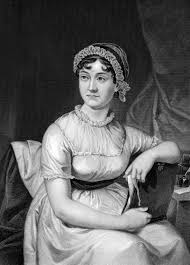
The Divine Miss Jane
Cheryl Miller
Claremont Review of Books | 2012
With Why Jane Austen?, Rachel M. Brownstein, professor of English at Brooklyn College, offers a defense of her subject. “The claim I make about Jane Austen,” she writes in answer to her title’s question, “is that she is a great writer, delightful to read.”
Here, it would seem, is a truth universally acknowledged. Along with Shakespeare and Dickens, Jane Austen unites excellence with popularity; she is, in Brownstein’s pithy appraisal, both great and delightful. The charm of such a combination has proven irresistible, inspiring countless sequels and spin-offs, mash-ups and parodies, film adaptations and television mini-series. Hardly a year can pass without some tribute to the “divine Jane”: Brownstein’s own offering comes on the heels of William Deresiewicz’s memoir, A Jane Austen Education (2011); Jane’s Fame by Claire Harman (2010); and A Truth Universally Acknowledged: 33 Great Writers on Why We Read Jane Austen by Susannah Carson (2009)—not to mention the 2009 novelty (and forthcoming film), Pride and Prejudice and Zombies.
“The Novels of Jane Austen / Are the ones to get lost in,” wrote novelist E.C. Bentley in 1905. Brownstein agrees: In her travels through Austenland, both figurative and literal (she makes stops in “Jane Austen Country” in Hampshire and at a Jane Austen Society meeting in New York), she learns how much fun there is in “sharing the same imaginary world.” Yet she also cannot help worrying that as much as we love to get lost in Jane Austen, Jane Austen has gotten lost in us. In our adoration of Jane Austen—our “Jane-o-mania”—we have neglected “the obvious, if forgotten, truth that Jane Austen is a serious writer.”